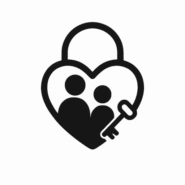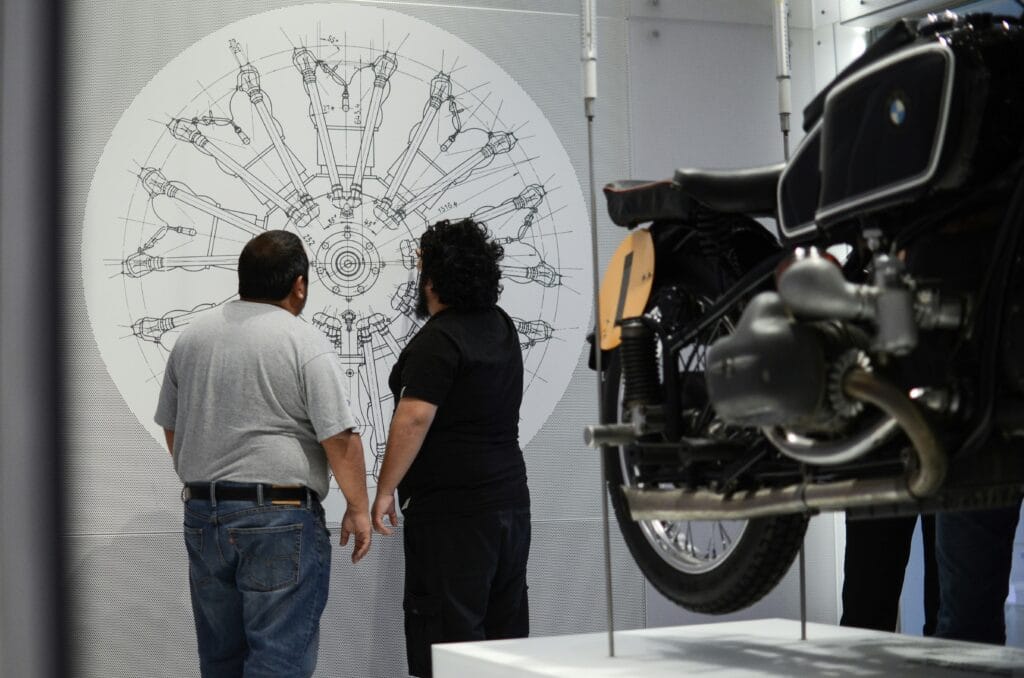After an affair, claiming responsibility is one of the most misunderstood parts of healing. Many people hear the word and instantly think it means admitting fault or taking the blame. But claiming responsibility isn’t about guilt – it’s about clarity. It’s about learning what belongs to you and what doesn’t, so you can stop dragging other people’s baggage and finally deal with your own.
Stepping Into Your Own Power
Jordan and Alex are three months past the disclosure. The dust has settled just enough for the shock to fade, and now they’re circling the same argument on repeat.
Jordan keeps a running mental ledger: every unanswered text, every late night at work, every detail Alex can’t seem to remember. “If you’d just tell me everything – all of it – I could finally start healing.”
Alex, on the other hand, feels cornered. Every question feels like an accusation. Every attempt to move forward gets swallowed by another interrogation. “I’ve said I’m sorry a hundred times. I’ve told you what I can. What else do you want from me?”
The air between them is heavy with blame and exhaustion. Jordan wants clarity. Alex wants relief. Neither feels like they’re getting what they need.
There’s a moment in every healing journey when the finger-pointing runs out of steam.
The “they hurt me” and the “life dealt me this” stories may be true and often, painfully so. But if we stay camped out there, we end up stuck in a waiting game for someone else to change, apologize, or rescue us.
This is the crossroads so many couples reach: the moment when hurt turns into a standoff, and waiting for the other person to make it right feels like the only option.
Claiming responsibility isn’t about taking the blame.
When we resist this step, we either carry too much, carry nothing at all, or carry the wrong things entirely. That’s why it feels so heavy, confusing, or unfair. But the truth is: when responsibility is understood correctly, it doesn’t add weight. No. Instead it creates freedom.
It’s about stepping into agency. It’s saying: This part is mine. And because it’s mine, I can do something with it.
The Closet Metaphor: Sorting What’s Yours
Think of it like cleaning out a closet after a move. Some boxes don’t even belong to you—stuff other people shoved in there. Those can go. But there are boxes with your name on them, filled with old habits, unspoken needs, choices you’ve made (and avoided). Claiming responsibility is about opening those boxes, sorting through them, and deciding what to keep, what to toss, and what to finally put to use.
Here’s the kicker: if you refuse to open the closet, the mess still affects you. The clutter presses against the door, spilling into other rooms of your life, your relationships, your health, your work. Claiming responsibility means you stop pretending it’s “just the way things are” and start deciding what gets to stay in your space.
Why Claiming Responsibility Feels So Hard
There’s a reason most of us resist this step. It feels risky. Many people equate responsibility with guilt or shame. If I admit I had a role, then maybe it means I “caused” the betrayal, the addiction, the disconnection, the loss.
But here’s the truth: responsibility isn’t about fault, it’s about response. It asks, What can I do now, given what’s happened?
- Blame keeps you powerless. When you refuse to pick up any of your boxes, you stand in the corner pointing at everyone else’s pile. The behavior of your partner will always belong to them, but you are part of this story too. Over time, both partners have to open their own boxes – not each other’s. The non-offending partner is never responsible for the offending partner’s choices and behaviors. Never. That said, both partners moved into the house together, brought their own boxes and clutter to this story. Blaming your partner for the boxes you brough isn’t helpful and doesn’t facilitate your own healing,
- Over-blame keeps you burdened. When you start hauling boxes that don’t belong to you – other people’s choices, mistakes, moods, or addictions, you crush yourself under all the weight you were never meant to carry. They weren’t your boxes in the first place. That kind of load is backbreaking, and no matter how hard you work, it won’t get their boxes unpacked.
- Over-responsibility keeps you depleted. This is when you run around the room trying to carry everyone’s boxes all at once, convinced it’s your job to keep the whole house from collapsing. You trade your rest for constant lifting, your needs for other people’s comfort. And still, it’s never enough. That kind of over-functioning doesn’t just exhaust you – it slowly erases you.
- No responsibility keeps you stuck. When you refuse to touch your own boxes at all, insisting the mess is only someone else’s problem, the closet never gets cleaned. You stay surrounded by clutter, waiting for someone else to do the work that only you can do. Without opening your own boxes, there’s no growth, no forward motion. You end up in the same cycle on repeat.
Claiming responsibility restores balance. Remember (because this is really important), true responsibility isn’t about carrying the whole load – it’s about knowing which boxes are actually yours. When you take ownership of your choices, your words, your boundaries; you reclaim the power to shift what can actually change. And when you put down the boxes that were never yours – your partner’s moods, your family’s expectations, someone else’s addiction – you free up the energy to focus where it counts: healing, growth, and building a future that reflects who you are becoming.
Responsibility doesn’t weigh you down. It actually lightens the load, because you’re finally carrying only what belongs to you.
The Power Shift: From Why to What Now
After betrayal or loss, it’s natural to search for explanations. We want to understand how it happened, what we missed, or why someone we trusted could make choices that shattered us. But staying stuck in those questions can keep us circling pain without finding a way forward. That’s where claiming responsibility changes the game. It helps us move out of the endless search for reasons and into the kind of action that actually creates healing.
When we’re hurt, our brains love the why questions:
- Why did they do this to me?
- Why wasn’t I enough?
- Why does this keep happening?
- Why can’t I fix them?
- Why did I let this happen?
- Why didn’t I say no?
But “why” has a tendency to keep us circling the drain. The answers rarely satisfy because they’re usually tied to someone else’s choices or to circumstances beyond our control. Why answers are never complete. It is rare when talking about human behavior that why answers can be defined by with one correct thing. Things happen because of our past, our personalities, our luck (or lack thereof), our resources, our support, our curiosity and interests, our beliefs, our vices.
Claiming responsibility shifts the focus. Try thing following:
- Instead of Why did they lie? → What boundaries will I set now?
- Instead of Why can’t I stop numbing out? → What healthier coping tool can I practice today?
- Instead of Why does this always happen to me? → What pattern am I repeating, and how can I disrupt it?
It’s a movement from analysis paralysis into meaningful action.
Everyday Examples of Claiming Responsibility
Let’s get practical. Claiming responsibility can look small and ordinary, not just dramatic and life-changing.
- In relationships: Owning that you shut down during conflict, rather than waiting for your partner to guess what’s wrong.
- In health: Admitting that late-night scrolling steals your sleep and choosing a boundary with your phone.
- In work: Recognizing that you procrastinate on tasks that trigger self-doubt and setting up accountability instead of berating yourself later.
Each of these shifts is less about beating yourself up and more about saying, I see my role and I’m choosing differently today. It is a practical way to claim responsibility – of unpack your own box – even if it’s a little at a time.
A Tool to Try: The Responsibility Inventory
Here’s a quick exercise you can use when you feel tangled up in blame or confusion.
- Name the situation. Write it down in one sentence. (Ex: “We had another fight about trust.”)
- Divide the boxes. On paper, make two columns: Mine to Carry and Not Mine to Carry.
- Sort it out.
- In Mine to Carry, list what you can actually influence (your words, your actions, your boundaries).
- In Not Mine to Carry, list what belongs to the other person or to circumstances you don’t control (their choices, their addictions, their unwillingness).
- Choose one action. Circle one item from Mine to Carry and commit to acting on it this week.
This practice helps you release what isn’t yours while leaning into what is. Over time, it builds a habit of living from agency instead of reactivity.
What Claiming Responsibility Is Not
Let’s clear up two common misconceptions:
- It’s not excusing others. Recognizing your role doesn’t mean letting someone off the hook for theirs. Both truths can coexist: Yes, they hurt me. Yes, I have choices about my response.
- It’s not self-punishment. If taking responsibility leaves you feeling smaller, heavier, or more ashamed, chances are you’ve picked up boxes that don’t belong to you. True responsibility should feel empowering. The box may still be heavy, but you can carry it with a sense of strength and pride because it’s yours, and you’re finally doing something about it.
Claiming Responsibility as a Key to Healing
Healing isn’t about rewriting the past – it’s about reclaiming your future. And that future is shaped, moment by moment, by what you choose to take ownership of.
When you claim responsibility, you stop waiting for someone else’s permission to move forward. You stop carrying weight that was never yours. You step into the role of author, not just character, in your own story.
And from that place, real change happens.
Bottom line: Claiming responsibility is how you reclaim power.
It’s how you shift from being at the mercy of your past to becoming the author of your next chapter.
Jordan and Alex didn’t figure it out overnight. At first, every conversation felt like another tug-of-war over who was more wrong, who had suffered more, who should fix what. But slowly, they began sorting through their own “boxes.”
Jordan realized it wasn’t their job to drag every detail out of Alex—endless interrogation wasn’t bringing safety, it was fueling more chaos. Their responsibility was to name their pain clearly, ask for what they needed, and set boundaries around what was acceptable moving forward.
Alex, meanwhile, began to see that minimizing and deflecting weren’t going to rebuild trust. Their responsibility was to own the harm they had caused and to show up with honesty and consistency, even when it was uncomfortable.
It wasn’t perfect. Some days the closet still looked like a mess. But little by little, each of them started carrying only what was theirs – and putting down what wasn’t. The fights softened. The silence between them grew less hostile. And for the first time in months, they began to feel like teammates again.
Because that’s the truth of claiming responsibility: when you stop dragging what isn’t yours, you finally have the strength to deal with what is. And that’s where healing begins.
Ready to start reclaiming your life? This is the work we do in counseling—untangling what’s yours, letting go of what isn’t, and building the skills to move forward with clarity and strength. Schedule your appointment today and take the first step toward living lighter and freer.

